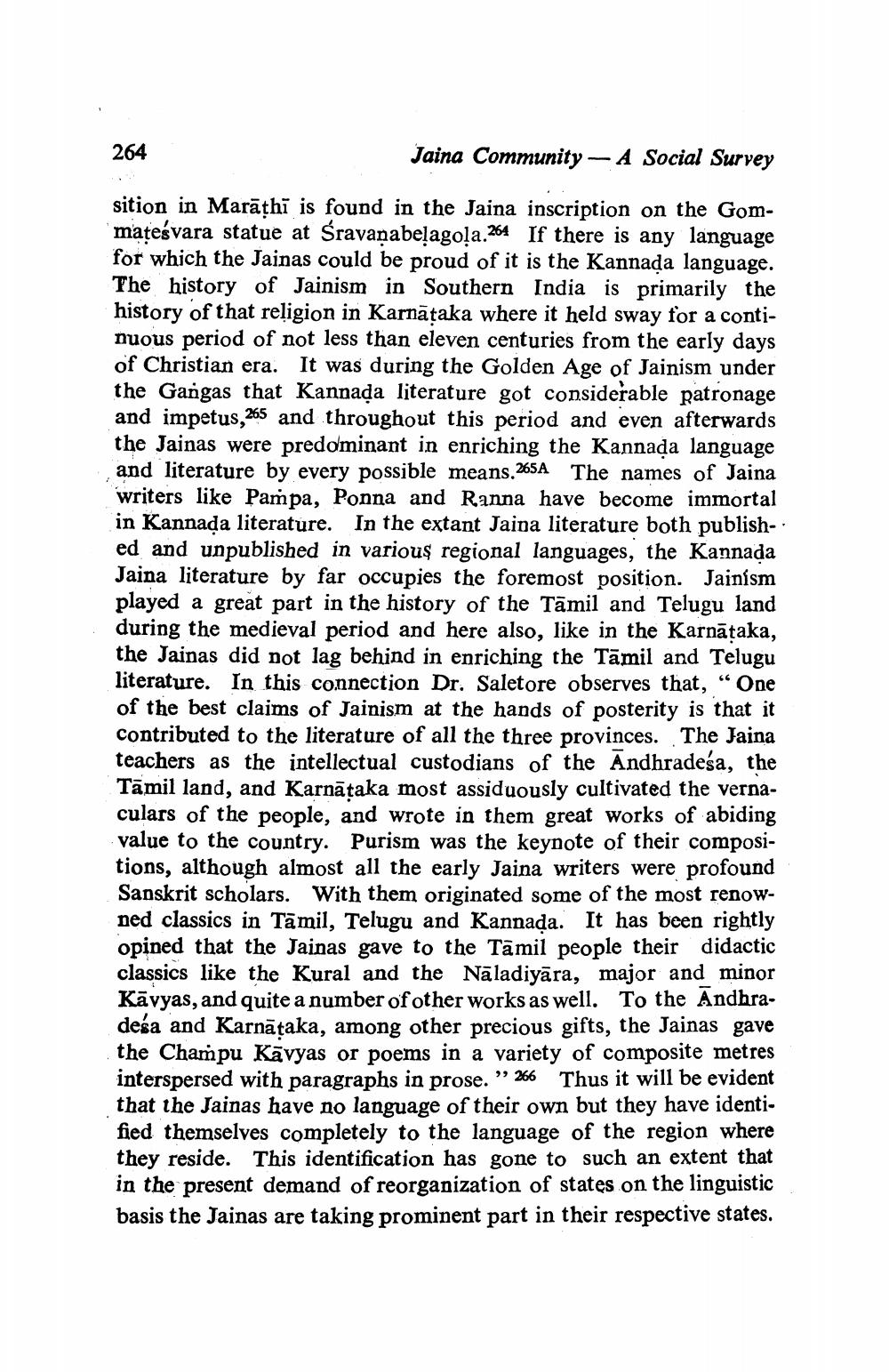________________
264
Jaina Community - A Social Survey
sition in Marāțhi is found in the Jaina inscription on the Gommateśvara statue at Sravanabelagola.264 If there is any language for which the Jainas could be proud of it is the Kannada language. The history of Jainism in Southern India is primarily the history of that religion in Karnataka where it held sway for a contimuous period of not less than eleven centuries from the early days of Christian era. It was during the Golden Age of Jainism under the Gangas that Kannada literature got considerable patronage and impetus,265 and throughout this period and even afterwards the Jainas were predominant in enriching the Kannada language and literature by every possible means.265A The names of Jaina writers like Pampa, Ponna and Ranna have become immortal in Kannada literature. In the extant Jaina literature both published and unpublished in various regional languages, the Kannada Jaina literature by far occupies the foremost position. Jainism played a great part in the history of the Tāmil and Telugu land during the medieval period and here also, like in the Karnātaka, the Jainas did not lag behind in enriching the Tamil and Telugu literature. In this connection Dr. Saletore observes that, “ One of the best claims of Jainism at the hands of posterity is that it contributed to the literature of all the three provinces. The Jaina teachers as the intellectual custodians of the Andhradeśa, the Tāmil land, and Karnātaka most assiduously cultivated the vernaculars of the people, and wrote in them great works of abiding value to the country. Purism was the keynote of their compositions, although almost all the early Jaina writers were profound Sanskrit scholars. With them originated some of the most renowned classics in Tamil, Telugu and Kannada. It has been rightly opined that the Jainas gave to the Tāmil people their didactic
ssics like the Kural and the Nāladiyāra, major and minor Kavyas, and quite a number of other works as well. To the Andhradesa and Karnataka, among other precious gifts, the Jainas gave the Champu Kavyas or poems in a variety of composite metres interspersed with paragraphs in prose.” 266 Thus it will be evident that the Jainas have no language of their own but they have identified themselves completely to the language of the region where they reside. This identification has gone to such an extent that in the present demand of reorganization of states on the linguistic basis the Jainas are taking prominent part in their respective states.




